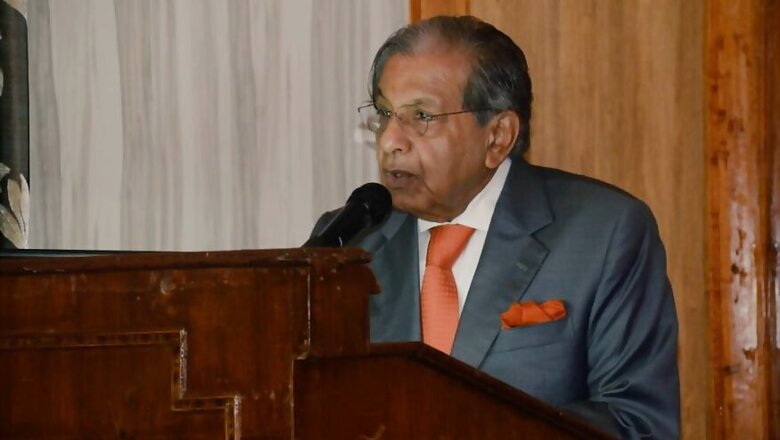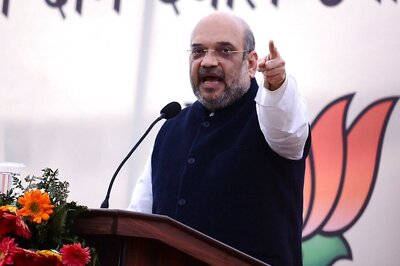
views
The linking of additional borrowing of states with reforms will help in medium-term debt management and the difficult job before the government is to return to a sustainable debt trajectory, 15th Finance Commission Chairman N K Singh said on Thursday.
Stating that additional 2 per cent borrowing by states is a "symmetric" treatment of the Centre and states, he said that the move augurs well for strengthening fiscal architecture.
As part of the economic package, the Centre on May 17 raised the borrowing limit of states from 3 per cent of gross state domestic product (GSDP) to 5 per cent in 2020-21, which will make available an additional Rs 4.28 lakh crore.
However, part of the increased borrowing limit would be linked to specific reforms -- universalisation of One Nation-One Ration Card, ease of doing business, power distribution and urban local body revenues.
"The increase in debt will ratchet up state borrowing. Some reforms are necessary as this will help them in debt management in the medium term. It is in the interest of states... following a path of higher growth trajectory would be necessary," Singh told reporters after the meeting of a committee on fiscal consolidation.
As per the increased borrowing plan, a 0.5 per cent increase in borrowing by states i.e. from 3-3.5 per cent, would be unconditional. The next 1 per cent, which is up to 4.5 per cent, will be released in 4 tranches of 0.25 per cent and each of the tranches will be linked to a measurable and feasible reform. The last 0.5 per cent will be given once the milestones are achieved in at least three of the four reform conditions.
Currently, states have a net borrowing ceiling of Rs 6.41 lakh crore based on 3 per cent of gross state domestic product (GSDP) and various states had written to the Centre to increase the borrowing limit to enhance their resources during the COVID-19 crisis.
Singh said the 0.5 per cent increase will translate to about Rs 1 lakh crore.
"The reform corrects the asymmetry. The difficult job will be the path of return to a sustainable debt trajectory. It will be challenging," he said.
Singh also said India will have to achieve a GDP growth of over 8 per cent in the medium term to sustainably manage the high debt burden arising out of increased expenditure due to the pandemic.
The central government earlier this month raised the estimated gross market borrowing to Rs 12 lakh crore from Rs 7.8 lakh crore as per the Budget Estimates for 2020-21.
Singh said the Commission would take into account the January-March and April-June quarter data to come out with the medium-term fiscal path for finalising its report by October.
"Certainly, we would like to be 8 per cent-plus, else the debt trajectory will not be sustainable," Singh added.
The Finance Commission, under Singh, has been mandated to work out the fiscal consolidation road map for the general government for the period, 2021-22 to 2025-26.
Singh said there would be a lag in recent reforms reflecting on growth and the fiscal consolidation committee differed in opinion over V-shaped or U-shaped or L-shaped recovery in India's growth.
He said the committee members were of the view that the nominal GDP growth could be around (-)0.6 per cent to 0 per cent to one per cent in the current financial year before rising to 4-5 per cent next year.
The meeting is likely to be attended by N K Singh (chairman of the Commission); Ajay Jha and Anoop Singh, members of the Commission; Chief Economic Adviser Krishnamurthy Subramanian; Controller General of Accounts Soma Roy Burman; Rajat Kumar Mishra, joint secretary in the Ministry of Finance; S Krishnan, additional chief secretary of the Government of Tamil Nadu; Anirudh Tiwari, principal secretary of the Government of Punjab; and Sajjid Z Chinoy and Prachi Mishra, eminent analysts.




















Comments
0 comment